The final part of Edgar Wright’s cult Cornetto Trilogy, THE WORLD’S END, is released in the UK this Friday (check out Matthew’s glowing four star review, here). To celebrate the film’s release, THN were lucky enough to sit down with the director last week. We also spoke to stars Simon Pegg and Nick Frost – check out that interview here.
This interview contains some very light spoilers, though nothing beyond what has been featured in the film’s trailers.
THE THIRD CORNETTO:
Edgar Wright: I think, aside from the cataclysmic ending, even just with some of the themes in the movie, there were things me and Simon have discussed as far back as SPACED that we felt we wanted to wrap up in this movie. And I think in all the three films we touch on sort of perpetual adolescence and the joys and the dangers of that, and we wanted to do a film that was much more about that, you know.
We didn’t want to do movie references and stuff, because ever since we did SPACED where we do that a lot, I think people would – and, you know, HOT FUZZ is more of a meta film, because they actually directly talk about the movies. In this one it just felt that the sci-fi theme was exactly what we wanted to say about the homogeny of chain pubs and how the British high street has changed and how your hometown has been infected by London. And so all of those things about the central theme of ‘you can never go home again’ perfectly fit in with that quiet invasion. And the things that really inspired it, and not so much specific films, but definitely things like John Wyndham and Nigel Kneale, you know, obviously things like INVASION OF THE BODY SNATCHERS and THE STEPFORD WIVES, but predominantly there’s a lot of – and John Christopher as well, a lot of British sci-fi authors that through TV and film then had a huge kind of effect on pretty much everything that we watched growing up. There’s a particular sort of strain of British sci-fi that I thought felt darker and would tackle global events through a very narrow focus in terms of, this is just one town, but it has consequences over the whole planet.
THE BOYS:
Edgar Wright: Well I think, when we were writing the film, I think what we really wanted to do – I mean, SHAUN OF THE DEAD is like nine years ago, is about a guy turning thirty and I think it’s that thing where we felt sort of you have to be, like, honest about the age of the actors and stuff. It’s like, Simon and Nick are both husbands and fathers, and there’s a thing I find in a lot of the American man-child comedies where people pretend to be stoner flat mates forever and it’s like, that’s not true! You guys are married! So what we thought was a good thing to do was take five people, four of whom are like grownup, either divorcees, or they’re married, or they’ve got kids, they’ve got proper jobs, and then one guy is like stuck in his teenage years and wants to drag them all back. So me and Simon always thought of Gary as ‘The Ghost of Sixth Form Past’. He sort of appears like a wraith in the movie. But that was important to us. It’s one of the reasons that we never did the third SPACED is that I think it would be extremely forced to pretend to be twenty-six forever.
I think some people think, and I think wrongly, that, “Oh, they always play the same sort of characters,” but I think people get that impression just from them as friends in interviews, because I think Shaun and Ed are different from Danny and Nicholas Angel and then different again in this. And I think particularly in this one, Nick Frost can be very serious and very stern when he’s on the phone with the council and sometimes when I’d see him in a bad mood, I’d think, “I want to see that Nick in a movie!” Because he can be extremely severe and sort of terrifying when he’s in a bad mood. But also, I think with the Gary character, both me and Simon feel like we wanted to have this redemption for that guy, because I think everybody has one of those people in their lives. And there are elements of me and Simon in Gary, so we do have sympathy for him because it’s – I think everybody knows someone like that, that they went to school with and who kind of hasn’t moved on and was like the coolest guy at school, and through whatever circumstance, whether it’s drink or drugs or failure in their career has kind of like stayed in that career at that point as everyone else has grown up. And so, you know, we liked the idea that he’s going to attempt to bring them back down to his level. But then even within the movie, very quickly he realises that they’re not the same guys, and within the first half an hour he’s already thinking about ditching them to hang out with some teenagers instead! So I just thought it was like a nice – I think everybody has been through that experience where you’ve gone to a wedding or a school reunion when you’ve gone back to your hometown, where it’s extremely bittersweet, and sometimes when you reconnect with friends you have running jokes that you maybe sort of had when you were a teenager, but you can’t quite remember them anymore, or it doesn’t mean anything anymore, it’s not funny anymore. So there’s a lot of elements of that kind of, like, more sort of frank, raw nerve comedy that we wanted to get into, because we went through it. But, you know, we also wanted to take someone that seems so far from redemption and make him your kind of galactic saviour by the end of the movie.
THE ACTION:
Edgar Wright: I think Simon saw SCOTT PILGRIM and saw what all the twenty year-olds had done and said, “I can do that.” And I said, “Okay, let’s do it!” I think what we wanted to do, what we wanted to make them feel like was that we wanted to do these quite intense brawls, so the thing that I’m really proud of and that’s hopefully obvious in the movie, is that the actors are really doing it, and if you watch, the camera never cuts away – it’s even less coverage than SCOTT PILGRIM. Like, that first fight, the camera is on them the whole time, and that’s because Brad Allan, who’s the stunt coordinator, an Australian guy who works with Jackie Chan’s team, and some really great stuntmen including a guy called Damien Walters who’s like a YouTube star and an incredible tumbler, they came up with these fights. And the other thing that I thought was really important about it was that I wanted to do some action scenes that – what I hope feels different about it is that there are no knives, there are no guns, it feels slightly different, it feels like a bar brawl that’s become kind of like surreal and out of control.
THE CHALLENGES AND LOCATIONS:
Edgar Wright: Shooting outside in Britain. Just the British weather! It’s always the British weather! Where you don’t get many British films shot on location is because it’s fucking freezing. I think the most ambitious part of the production is just – a lot of it is shot on location. And so to do big kind of fight scenes and big lighting setups and special effects on location in these places is really tough. There’s not a lot of green screen in the movie, we’re really at all of those places. And even shots like – I can talk about this because it’s in the trailer – you see all the Blanks running down the street, that’s all in camera, like we did that for real. And when we actually did it, it just looked really spooky en mass, because there’s like eighty people running at you with lights for eyes, you know. So it’s all really good, but it makes it quite an intense shoot.
I think some other smaller things have been in Letchworth – maybe it’s the first film in Welwyn Garden City for a while. There used to be a studio in Welwyn Garden City. But the reason that we went to Letchworth and Welwyn Garden City is because they both were the original garden cities and they both had architecture from the tens and twenties, and to me that gave it that British sci-fi vibe, and when we were walking around there I was thinking, “I’m getting a distinct John Wyndham vibe from this place,” and that’s great. And they’re relatively intact as well, I’m not sure how much they got bombed during World War Two, it doesn’t seem like a lot because the actual entire square and avenue and interlocking buildings is all completely intact. The irony is, is that Letchworth and Welwyn Garden City are both Quaker towns, they were designed to be dry and they actually didn’t have enough bars, so we had to kind of fabricate some of the bars ourselves. So I think people at Letchworth and Welwyn Garden City were a bit bemused as to like, “Why have you made our towns the drinking towns, we don’t have that many pubs!”
THE BEER:
Edgar Wright: I’m the idiot! It’s kind of where the start of the film comes from, is that when I was nineteen, I tried to do it in my hometown which is in Somerset, which is the same town where we shot HOT FUZZ. And it had fifteen pubs and I tried to do it with my friends, and I got through like six of them and I got wildly blackout drunk and ended up wandering off on my own and eventually found my friends again at two o’clock in the morning. And it was a very silly idea with a very stupid outcome. But it kind of gnawed at me, and I even wrote a film about it when I was 21, I wrote a film called CRAWL that was about teenagers on a pub crawl. And I never did anything with it, but then, after HOT FUZZ, I started thinking about it again and thinking, “Maybe it’s just the first three minutes of the movie. Maybe the movie is about the older guys trying to go back.” I did try and do one with Simon and Nick in Wales, and that was even more pathetic than the first attempt. I think the first time I got through six, the second time I got through three! So I would not actually condone trying to do this movie, because I could not do it myself, I would be the Captain Oates, I would be the first one out. It’s probably a good thing that some of the pubs are not real! And what’s funny is that we had to transform some. The best transformation is Letchworth train station was turned into a pub. So pub number eleven is Letchworth train station. It looks amazing, but it was still working, we couldn’t shut down the train station. So you had this completely surreal image every twenty minutes, that this Tardis-like pub would have eighty commuters from London come pouring out! And I always wondered if there would be somebody who’d never been to Letchworth before who would get off the train, walk straight into the high street and go, “Hey, wait, what?” to himself and wonder where did the train station go!
THE MUSIC:
Edgar Wright: I would probably like to think of myself as an indie kid, but I don’t think I was ever that cool. Although I think around when I was sixteen, I think was probably when I first started buying the NME and something like that. So up until that point, it had been exclusively what was on the Radio 1 Top 40. Well, I remember specifically, I was sixteen in 1990, I remember that I used to listen to the Top 40. And every now and again an indie song would break into the Top 40 and it would seem quite dangerous and I remember specifically Bruno Brookes saying, “In at number 37 is Primal Scream with Loaded.” And you’d be like, “What! This isn’t Jaki Graham!” But I remember hearing that when it first went into the Top 40 and obviously it stuck with me. But, you know, what we tried to do with that soundtrack is that there are some of those hedonistic party anthems that have never gone away, like obviously Primal Scream’s Loaded was all over Glastonbury this weekend. You hear I Am Free by The Soup Dragons in shops and like Step On has never gone away. And we thought it’d be great if this character, Gary’s character, hears these things still in the ether and is thinking, “The party’s still happening!” He was still listening to Loaded. He’s taken the lyrics from like I Am Free and used it as his design for life, basically. So that was a thing that just felt like it was – and you know, it’s true in terms of The Stones Roses’ reunion concerts and stuff, you suddenly realise, “Oh my God, that’s twenty years ago,” and that’s reflected in the age of the audience. I think to shy away from the reality of their age would be just false. That’s what I said, you can’t pretend to be twenty-six forever.
THE MESSAGE:
Edgar Wright: I think if you have a Gary King in your life, at the end of the movie you should be seeing if he’s okay and call him! What’s going to be funny at the world premiere tomorrow is that all of the people that I went on the pub crawl with in 1993 are all coming, a couple of them that I haven’t seen for like ten years. And I emailed all of them with the trailer and said, “Does any of this seem familiar? Minus the robots?” So that’s going to be funny. Because it’s a film as well, like Simon and Nick’s characters, there’s a rift between them and stuff, I think when you do have something when you’ve fallen out with somebody, when you get back together and sometimes it’s up to you to forgive them, like it’s a very powerful thing. I had somebody that I had a major falling out with and it was kind of his fault, but then I felt like I should be the bigger man and just say, “You know what, forget it.” And then when you then connect after years, it’s an extremely good feeling. I would hope that the movie would be A, therapeutic and B, show you how to punch an alien invader’s head off!
THE FAVOURITE SCENE:
Edgar Wright: I like watching the fight scenes because I’m always very proud of what the actors managed to achieve and I think their choreography is great. And what was great about this, unlike SHAUN where there’s zombies and stuff, is that we actually designed the baddies. Like, the Blanks, me and my brother basically designed them together sort of based on this idea of when we used to have Action Men as kids and you used to twist their heads off and take the arms off and look at the sockets and stuff. So we had the idea of dismembered action figures and then even the idea of it being blue inside was – I had this thing. It wasn’t always going to be blood and I felt there had been some kind of committee meeting to say all alien blood was green, so I thought we could go blue. And the reason it’s blue is because I wanted to make the actors feel like they were little kids, and when I was at school, I used to end every day with fountain pen ink all over my hands, and then by the time I walked home, I’d wiped it all over my face. And so my image of school was always, my sense memory would be I’ve got inky hands and an inky face. So straight after that first fight I wanted to make all the cast look like that so they suddenly looked like little kids again. So I really like watching all of those sequences and I’m very sort of – the last fifteen minutes I like watching a lot because we literally only just finished it a couple of weeks ago and I’m just very pleased with what we managed to do production design-wise and what Double Negative managed to do, so I like watching the end. And it chokes me up as well! I sort of get choked up even though I know that Simon and Nick are in the next room and that they’re fine!
THE NEXT PROJECT – ANT-MAN:
Edgar Wright: Sorry guys, I’ve got to go…! You know what, the honest answer is that I start after this press tour, so I can’t even wrap my head around it. But it’s basically next. But in the meantime, thank you!
THE WORLD’S END is released in UK cinemas on July 19th and US cinemas on August 23rd.
Pint-sized freelance film journalist. Editor of iamnotwaynegale.com, Reviews Editor at The Hollywood News and contributor to others. Awaiting a Hardy/Hiddleston/Cumberbatch/Fassbender/Gosling team-up.

2 Comments
Leave a Reply
Leave a Reply
Latest Posts
-


Apple TV
/ 20 hours agoTrailer: André Holland leads Apple’s new limited series, ‘The Big Cigar’
Apple TV+ has released the full trailer for The Big Cigar, a new, six-episode...
By Paul Heath -


Film News
/ 21 hours agoUK trailer, poster and release date for Sundance smash ‘Sasquatch Sunset’
Premiering in the UK at the Sundance London event in June is the brilliant...
By Paul Heath -


Disney+
/ 23 hours agoNew trailer for ‘Becoming Karl Lagerfeld’ with Daniel Brühl
A trailer has landed for the June-released Becoming Karl Lagerfeld, the Disney+/ Hulu series...
By Paul Heath -


Film News
/ 23 hours agoUK release date revealed for Cannes film ‘The Delinquents’
MUBI has announced the release date for The Delinquents, the Cannes Un Certain Regard-premiering...
By Paul Heath








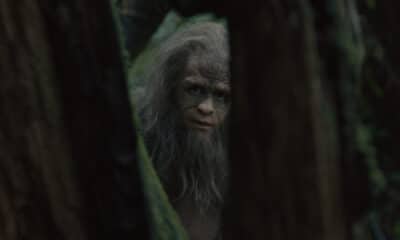



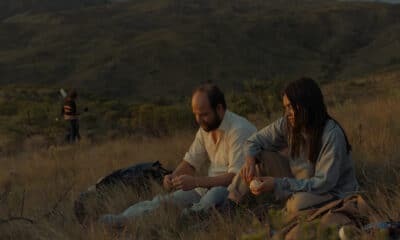



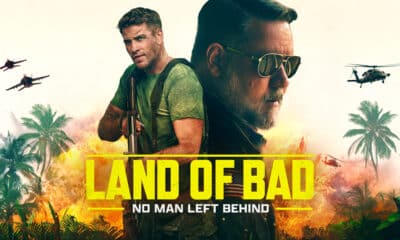

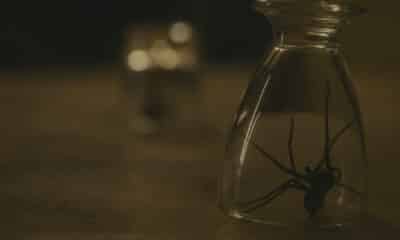

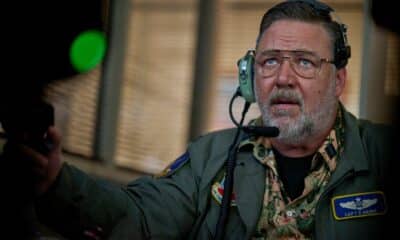

Pingback: Edgar Wright Talks ‘The World’s End’ With THNCelebrity Blog | Celebrity Blog
Pingback: Interview: Edgar Wright Talks The World’s End | Emma Thrower